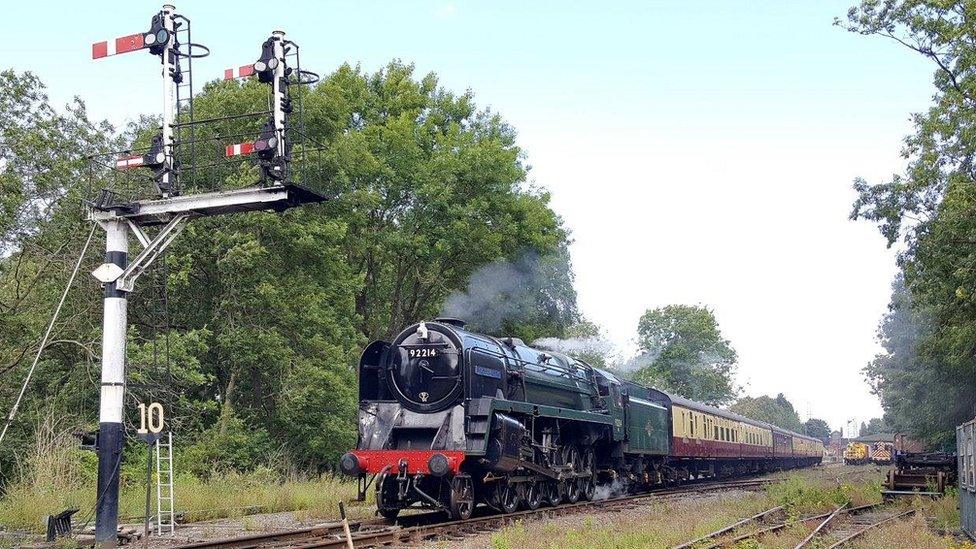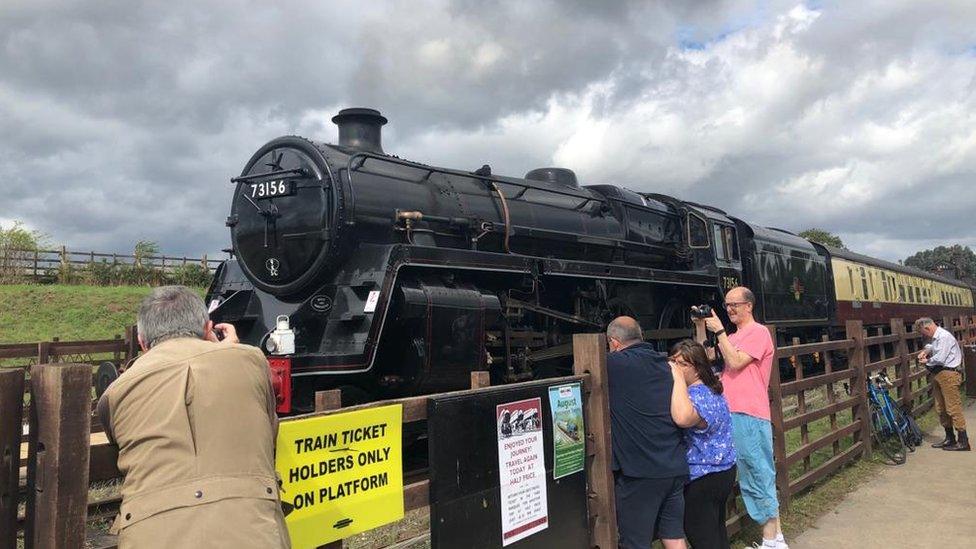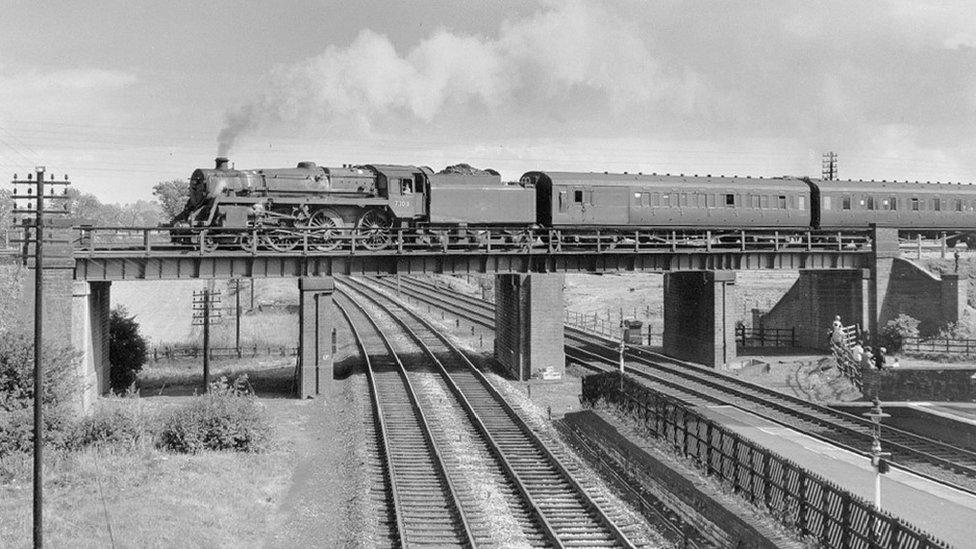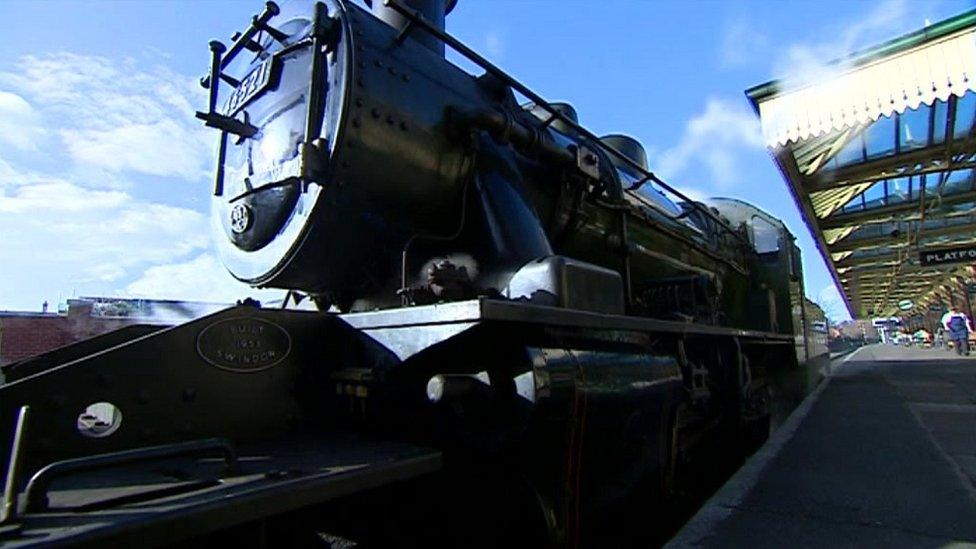Great Central Railway: 'Bitter blow' as lottery bid fails
- Published

The first train for four months ran on the line on 25 July
The organisers of a heritage railway have said being turned down for lottery support is a "bitter blow".
Great Central Railway, in Leicestershire, had sought £250,000 to mitigate the effects of coronavirus.
Managing director Michael Gough said: "We stand to lose more than £2m this year - this funding was about paying wages and vital maintenance."
A Heritage Lottery Fund (HLF) spokesperson said the bid was "outside the scope" of their support.

Even the most basic functions are running at half capacity, organisers say
The line is known for its double track, which means it is one of the only UK heritage attractions where steam trains can pass each other.
The National Lottery Heritage Emergency Fund was set up to give grants of up to £250,000 to help organisations affected by Covid-19.
Mr Gough said they had already lost £1m during lockdown and would lose at least another £1m due to reduced capacity and cancelled events.
"There are lots of projects that now just won't happen," he said.
"We were confident of getting this grant, we put in a good application, so it's a bitter blow to be turned down."
The HLF said in a statement: "We were unable to support the application as it focused on costs for capital works, which were outside the scope of the programme, rather than emergency or stabilising costs.
"We understand this is disappointing news."

Great Central Railway
Opened in 1899 and linked Manchester, Sheffield, Nottingham, Leicester and Rugby to London
Closed in 1966, but a section from Leicester to Loughborough was saved by a group of enthusiasts
In 1976, Great Central Railway PLC was formed, which runs trains from this section of the track
In 1989, Great Central Railway Nottingham took over the former MOD site at Ruddington - the last MOD train ran out of there in 1983
Source: GCR, external and GCRN, external

Follow BBC East Midlands on Facebook, external, on Twitter, external, or on Instagram, external. Send your story ideas to eastmidsnews@bbc.co.uk, external.
- Published8 September 2018

- Published16 February 2018

- Published15 December 2017
